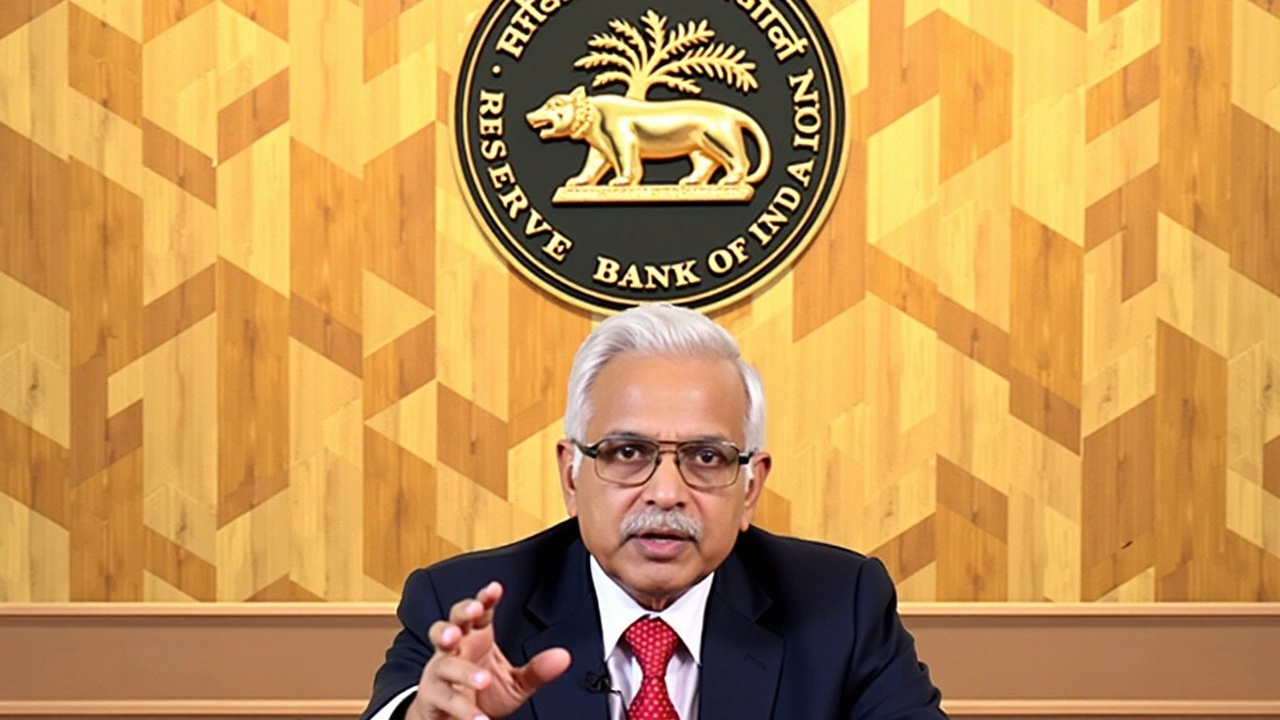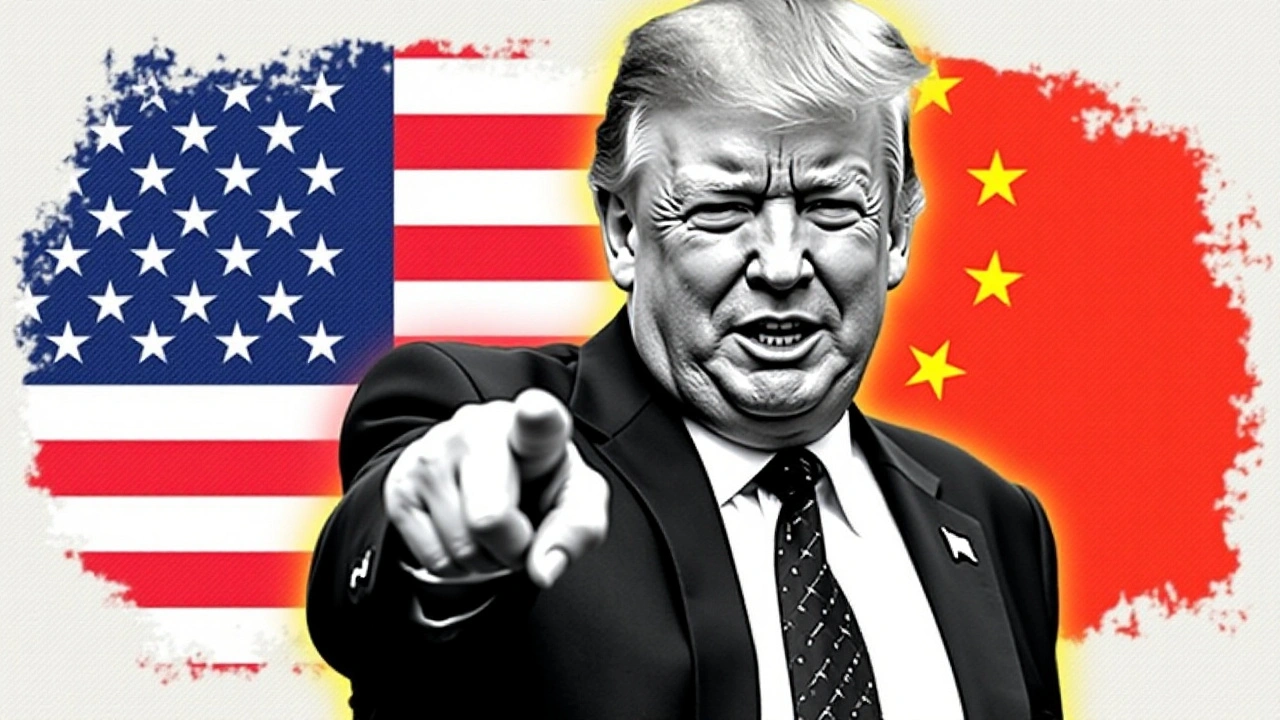BRICS Nations and the Currency Challenge
The possibility of developing a new currency among the BRICS nations has recently been a hot topic in financial circles. However, according to Finance Minister Enoch Godongwana, there have been no direct exchanges on this subject. In a world where countries are exploring ways to reduce reliance on the U.S. dollar, the BRICS bloc—comprising Brazil, Russia, India, China, and South Africa—seems to be taking a cautious approach. The establishment of alternative financial systems is indeed a big ambition, but it is seen as a long-term goal rather than an immediate fix. Leslie Maasdorp, New Development Bank’s vice president, emphasized that the creation of an alternative currency is not on the immediate agenda. After all, de-dollarization is a complex venture that cannot be rushed.
Local Currencies: A Step Towards Self-Reliance
While a brand new currency may not be in the near future, the BRICS nations are keen on enhancing trade using local currencies. This initiative essentially helps cut the reliance on the U.S. dollar, which stands as the pillar of global finances. Although this might seem a step towards creating a new financial order, Minister Godongwana was clear that there are still no distinct plans to challenge the dollar's hegemony. The Chinese Renminbi, for instance, is far from being a global reserve currency, as reliance on the dollar is entrenched deeply within the international financial framework. Still, these nations are incrementally testing the waters, aiming to encourage more trade within their local currencies.
Expanding the Lending Horizon of NDB
While crafting an exclusive currency seems like a distant dream, the New Development Bank, which serves the BRICS nations, remains focused on its foundational goals. One of its main objectives is expanding membership to include more emerging markets, providing them with a significant platform for financial growth. During these challenging times, the bank strives to channel 40% of its lending toward climate-focused projects. This initiative is expected not only to promote sustainability but also to provide a buffer against the uncertainties many countries face due to climate change. Initiatives like these substantiate the Bank’s commitment towards fostering global socioeconomic transformation.
Enhancing Non-Dollar Trade Relations among BRICS
In efforts to partner beyond traditional finance structures, Minister Godongwana expressed intent for deeper cooperation with the BRICS countries to encourage non-dollar trades. However, he clarified that there hasn’t been a direct plea from these nations specifically pushing for de-dollarization. Already, Russia and India have hinted at innovating their financial infrastructures to boost trade with intermediaries focusing on payroll and settlements using local currencies. Preliminary discussions have started to build interconnected payment infrastructures, yet, prioritization seemed tailored, as the South African Reserve Bank is momentarily emphasizing domestic and regional payments goals.

Looking Ahead: Embracing Innovation Through CBDCs
The innovation tied to central bank digital currencies or CBDCs is gaining traction, and BRICS nations plan to exchange learnings from their initial experiences. The topic of digital money often leads to engaging discussions, as it offers a prospective path to bypass traditional currency barriers. By sharing knowledge and founding bilateral payment systems, the countries can consider the eventuality of settling trades in indigenous currencies. The Treasury believes progress hinges on the market’s inherent desire for this shift to alternative currencies. It’s a gradual process, but there’s optimism about paving a diversified future in global finance.

20 Comments
Dr Nimit Shah December 7 2024
The BRICS talks about a new currency are clearly a showcase of geopolitical bravado.
While everyone chats about de‑dollarisation, the real answer lies in strengthening existing trade corridors.
It’s not about a flashy token; it’s about building resilient economic ties that actually move goods.
Ketan Shah December 12 2024
From a cultural standpoint, shifting to local currencies can promote regional identity and reduce external pressure.
The practical steps involve aligning settlement systems and legal frameworks, not just lofty speeches.
It’s a gradual process that requires cooperation beyond political rhetoric.
Aryan Pawar December 16 2024
Love seeing the focus on climate‑focused lending – that’s the future we need.
Hope the NDB keeps pushing 40% into green projects, it’ll set a great example.
Shritam Mohanty December 21 2024
They’re hiding the fact that the dollar’s grip is maintained by shadow bankers pulling strings.
Any talk of alternatives is just a smokescreen for their real agenda.
Anuj Panchal December 25 2024
Utilizing bilateral swap lines and enhancing payment‑gateway interoperability are key technical levers.
When you embed these mechanisms within existing fiscal protocols, you reduce friction.
Moreover, stakeholder engagement via multilateral forums accelerates adoption.
Prakashchander Bhatt December 30 2024
It’s encouraging to see optimism around non‑dollar trade, even if the timeline feels slow.
Every incremental step builds confidence for broader reforms.
Mala Strahle January 4 2025
The philosophical underpinnings of monetary sovereignty intrigue me deeply.
When nations assert control over their own fiscal instruments, they reclaim a piece of their identity.
However, the global interdependence means such moves must be balanced with diplomatic nuance.
History shows that abrupt currency shifts can destabilize markets, so prudence is essential.
Nevertheless, the gradual embrace of local currencies could seed a more diversified financial ecosystem.
Sally Sparrow January 8 2025
These so‑called “ambitious” plans are nothing more than veneer; the underlying power structures remain untouched.
Eric Yee January 13 2025
The colorful reality is that without a robust digital backbone, any local‑currency push will sputter.
We need blockchain‑grade infrastructure, not just political will.
Sohila Sandher January 18 2025
i think its definatly a step forward but we gotta be real about the challenges.
the market wont just switch overnight, it needs trust and clear rules.
lets keep the convo going and watch the data.
Anthony Morgano January 22 2025
Really cool to see the NDB’s climate focus! 😊
It’s a solid reminder that finance can drive sustainability.
Holly B. January 27 2025
The article outlines the path clearly; implementation will be the true test.
Lauren Markovic February 1 2025
Great insight! 👍
Looking forward to seeing how CBDC experiments shape future trade.
Kathryn Susan Jenifer February 5 2025
Oh sure, because swapping a few yuan for rand will magically topple the dollar empire – say it isn’t so! 🎭
Jordan Bowens February 10 2025
Sounds like another policy buzzword parade.
Kimberly Hickam February 14 2025
The notion that BRICS could someday field a unified currency is, frankly, a romantic fantasy anchored in historical precedent rather than contemporary economics.
First, each member nation operates under vastly different monetary policies, inflation targets, and fiscal discipline, making a single reserve instrument infeasible.
Second, the geopolitical tensions among the bloc-especially between Russia and China-introduce a layer of mistrust that no technocratic solution can easily dissolve.
Third, the global financial architecture, dominated by the International Monetary Fund and the World Bank, would likely resist any concerted move that threatens the dollar’s hegemony.
Fourth, the logistics of creating a cross‑border payment network that satisfies both strict regulatory standards and the speed demands of modern commerce are staggering.
Fifth, while digital currencies like CBDCs promise efficiency, they also raise sovereignty concerns that many governments are unwilling to cede.
Sixth, the dollar’s entrenched role as the world’s primary reserve asset is reinforced by deep‑liquidity Treasury markets that no emerging economy can replicate overnight.
Seventh, investors’ risk appetite remains tethered to the predictability of US monetary policy, not the whimsical promises of a new BRICS token.
Eighth, the New Development Bank’s focus on climate‑linked lending is commendable, yet it does not directly address the core issue of currency substitution.
Ninth, even if a BRICS digital token were launched, its acceptance would hinge on the willingness of private sector participants to adopt it, which is uncertain at best.
Tenth, the technological infrastructure required for secure, interoperable settlement across five continents is still nascent and fraught with cybersecurity vulnerabilities.
Eleventh, historical attempts at multi‑national currency unions, such as the Euro, demonstrate that political alignment and fiscal solidarity are prerequisites for success.
Twelfth, many of the BRICS economies are still battling internal challenges-ranging from capital controls to banking sector reforms-that would undermine a common monetary platform.
Thirteenth, the speculative allure of a new currency could generate volatile capital flows, exacerbating financial instability rather than alleviating it.
Fourteenth, the United States is unlikely to stand idly by; it possesses both the diplomatic clout and economic tools to counteract any coordinated de‑dollarisation effort.
Fifteenth, the real value of the BRICS initiative may lie not in a single currency but in diversified financial instruments and bilateral swap arrangements.
Sixteenth, therefore, the prudent path forward is incremental-building robust payment corridors, enhancing digital infrastructure, and fostering trust among participants.
Seventeenth, only through sustained cooperation and realistic expectations can the bloc hope to reshape the global finance landscape, without chasing an elusive monetary myth.
Gift OLUWASANMI February 19 2025
Even if you think there’s a hidden agenda, the reality is that these shadow networks thrive on opacity, not on any credible new currency scheme.
Keith Craft February 24 2025
Oh, the drama! Let me tell you, the very idea of a BRICS money drama is the climax of a saga that never even began – it’s pure theater!
Kara Withers February 28 2025
Happy to see the enthusiasm for climate finance – it’s truly a win‑win when sustainable projects get solid backing.
boy george March 5 2025
Interesting.